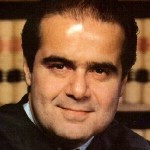Federalism and Criminal Law
 This is the fourth in a series of posts reviewing last term’s criminal cases in the United States Supreme Court and previewing the new term.
This is the fourth in a series of posts reviewing last term’s criminal cases in the United States Supreme Court and previewing the new term.
Habeas corpus presents the classic federalism problem in criminal law: how can federal courts overturn flawed state-court judgments while maintaining due respect for state sovereignty and the autonomy of state criminal-justice systems? But federalism issues can also appear in criminal cases that originate in federal court. In its new term, the Supreme Court has at least two such cases.
First, in United States v. Johnson, the Court will consider whether a battery conviction in Florida state court counts as a violent crime for purposes of the Armed Career Criminal Act, a federal sentencing statute. (I have posted several times about ACCA in the past year, most recently here.) Although “battery” normally evokes images of serious violent crime, Florida law defines battery so that it includes any nonconsensual touching, regardless of risk of injury. For that reason, the Florida Supreme Court has already ruled that battery is not a violent crime for state-law purposes. Thus, in Johnson, the United States Supreme Court is confronted with a question of whether it should defer to state-court characterizations of state crimes for purposes of implementing a federal statute.
Second, in United States v. Weyrauch, the Court must decide whether a state official can be convicted of honest-services fraud based on a conflict of interest that did not violate state law. (This is one of three new cases in which the Court will consider various dimensions of the federal crime of honest-services fraud.)

 As a Catholic whose views are in line with those of Pope Benedict XVI, US Supreme Court Justice Antonin Scalia personally opposes abortion.
As a Catholic whose views are in line with those of Pope Benedict XVI, US Supreme Court Justice Antonin Scalia personally opposes abortion.